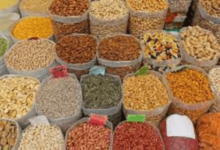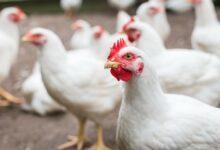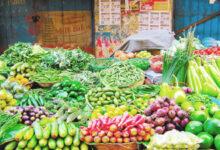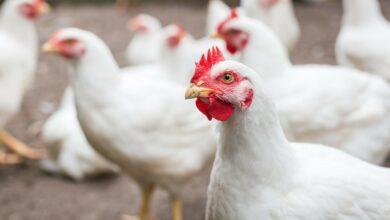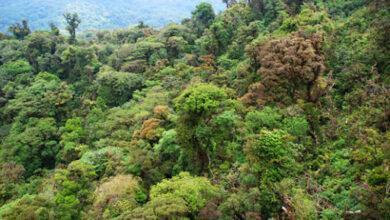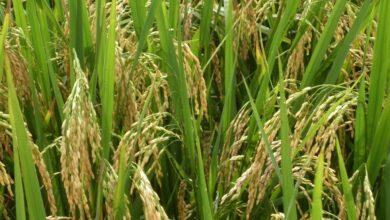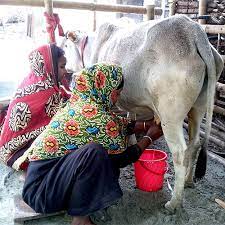
7 Problems Facing By Livestock Industry In Nigeria
Problems Facing By Livestock Industry In Nigeria –
7 Problems Facing By Livestock Industry In Nigeria. The livestock industry in Nigeria faces a variety of challenges, including disease outbreaks, poor infrastructure, and lack of access to markets and financing. Additionally, the industry is affected by overgrazing and land degradation, as well as competition for resources with other sectors such as agriculture. We will dwell more on problems faced by the livestock industry in Nigeria in this article.7 Problems Facing By Livestock Industry In Nigeria
What Is Livestock Industry?
The livestock industry refers to the production and management of domestic animals such as cattle, pigs, sheep, goats, horses, and poultry for the purpose of food, fiber, or other products. It includes activities such as breeding, feeding, and caring for animals, as well as the processing and distribution of meat, milk, and other products. The industry is closely linked to the broader agricultural sector and can play an important role in rural development and food security.
👉 Relocate to Canada Today!
Live, Study and Work in Canada. No Payment is Required! Hurry Now click here to Apply >> Immigrate to CanadaRead Also: Problems Facing democracy in Nigeria
Forms Of Livestock Industry
- Dairy Farming:
Dairy farming is the process of raising and caring for dairy cows in order to produce milk. The milk is then processed and packaged for consumption.InformationGuideNigeria
Dairy farming is an important aspect of the livestock industry as it provides a source of nutrition and income for many farmers. It requires a significant investment in infrastructure such as barns, milking equipment, and feed. The industry also requires skilled labor and management to ensure the health and well-being of the cows and the quality of the milk produced.
- Beef Farming:
Beef farming is the process of raising and caring for cattle in order to produce meat for consumption. Beef farming is a significant component of the livestock industry as it provides a source of protein for human consumption. It requires a significant investment in infrastructure such as pastureland, feed, and housing for the cattle. The industry also requires skilled labor and management to ensure the health and well-being of the cattle and the quality of the meat produced.
- Poultry Farming:
Poultry farming is the process of raising and caring for chickens, turkeys, ducks, geese, and other birds for the purpose of producing eggs and meat for consumption. Poultry farming is a significant component of the livestock industry as it provides a source of protein and income for many farmers. It requires a significant investment in infrastructure such as poultry houses, feed, and equipment. The industry also requires skilled labor and management to ensure the health and well-being of the birds and the quality of the eggs and meat produced.
- Pig Farming:
Pig farming is the process of raising and caring for pigs for the purpose of producing pork for consumption. Pig farming is a significant component of the livestock industry as it provides a source of protein and income for many farmers. It requires a significant investment in infrastructure such as pens, feed, and equipment. The industry also requires skilled labor and management to ensure the health and well-being of the pigs and the quality of the pork produced
Aquaculture is the farming of aquatic organisms such as fish, shellfish, and seaweed. It is a growing component of the livestock industry as it provides a source of protein and income for many farmers. Aquaculture can be done in both freshwater and marine environments, and it requires a significant investment in infrastructure such as ponds, tanks, and equipment. The industry also requires skilled labor and management to ensure the health and well-being of the aquatic organisms and the quality of the products produced.
Read Also: 10 Major Problems Facing Education In Nigeria
👉 Relocate to Canada Today!
Live, Study and Work in Canada. No Payment is Required! Hurry Now click here to Apply >> Immigrate to CanadaRoles Of Livestock Industry In Nigeria
- Food Security:
Livestock production is a major source of protein for the Nigerian population, providing meat, milk, and eggs for consumption.
- Employment:
The livestock industry provides employment opportunities for a large number of people in rural areas, including farmers, herders, and processors.
- Economic Development:
The livestock industry is a significant contributor to the Nigerian economy, generating income for farmers and supporting related industries such as feed production, veterinary services, and transportation.
- Foreign Exchange:
Exportation of livestock and livestock products generates foreign exchange for the country.
- Rural Development:
The livestock industry helps to support the development of rural communities by providing income, employment, and other economic opportunities.
Problems Facing By Livestock Industry In Nigeria
The livestock industry in Nigeria faces several challenges, including:
- Disease:
Livestock in Nigeria are often subject to diseases such as trypanosomiasis, contagious bovine pleuropneumonia, and foot-and-mouth disease, which can reduce productivity and profitability.
- Poor Infrastructure:
The livestock industry in Nigeria is hindered by poor infrastructure, including a lack of roads, storage facilities, and veterinary services.20 Best University In Nigeria For Masters Degree
- Limited Access To Markets:
Many farmers have limited access to markets, which makes it difficult for them to sell their products and receive fair prices.
Read Also: Problems and Prospects of Universal Basic Education in Nigeria
- Limited Access To Credit:
Many farmers have limited access to credit, which makes it difficult for them to invest in their farms and improve productivity.
- Climate Change:
The livestock industry in Nigeria is also affected by the impacts of climate change such as drought, floods and extreme temperature, which can lead to reduced productivity and increased disease incidence.
- Inadequate Research And Development:
There is inadequate research and development in the livestock industry, which makes it difficult for farmers to adopt new technologies and improve productivity.
- Inadequate Extension Services:
The lack of extension services for farmers which can limit their access to training, technical support and information on best practices in the livestock industry.
Read Also: 10 Challenges and Problems Facing JAMB and Possible Solutions
Solutions To Problems Facing By Livestock Industry In Nigeria
There are several solutions that can be implemented to address the problems facing the livestock industry in Nigeria, including:
- Disease control: Implementing effective disease control measures such as vaccination, quarantine, and improved biosecurity can help to reduce the incidence of diseases in livestock.
- Improving infrastructure: Investing in infrastructure such as roads, storage facilities, and veterinary services can help to improve the efficiency and profitability of the livestock industry.
- Market access: Encouraging the development of market linkages between farmers and buyers can help to improve the availability of markets and increase the price farmers receive for their products.
- Access to credit: Improving access to credit for farmers can help them to invest in their farms and improve productivity.
- Climate-smart practices: Promoting climate-smart practices such as drought-tolerant breeds, rainwater harvesting, and improved grazing land management can help farmers to adapt to the impacts of climate change and reduce the risk of crop failure.
- Research and development: Investing in research and development in the livestock industry can help to improve productivity and profitability by developing new technologies and techniques.
- Extension services: Increasing the number of extension services and training programs available to farmers can help them to improve their knowledge and skills and adopt new technologies and best practices.
- Government policy: The government could enact policies that promote the development of the livestock industry, such as increasing investment in research and development and providing subsidies or tax breaks for farmers.
- Public-private partnership: Establishing public-private partnerships can help to promote investment and development in the livestock industry.
Read Also: 10 Problems and Challenges Facing the Police Service Commission in Nigeria
Conclusion
The livestock industry in Nigeria faces a number of challenges, including disease, poor infrastructure, limited access to markets and credit, and the impacts of climate change. These challenges can have a significant impact on the productivity and profitability of the industry and on the livelihoods of farmers and rural communities.NYSC Portal
However, there are solutions that can be implemented to address these challenges, such as disease control, improving infrastructure, market access, access to credit, and promoting climate-smart practices. Additionally, increasing investment in research and development, extension services, and Government policies that promote the development of the livestock industry, can help to improve the industry’s performance and contribute to the overall development of the country. It is important for all stakeholders including the government, private sectors and farmers to work together to address these issues and develop a sustainable livestock industry that can provide food security and economic development in the country.
Check JAMB Result
Check and Confirm: How much is Dollar to Naira
